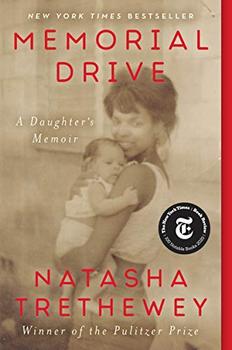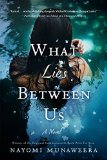Summary | Excerpt | Reading Guide | Reviews | Beyond the book | Read-Alikes | Genres & Themes | Author Bio

Darin Strauss's Half a Life is impossible to put down. The book's artful design caught my eye before I even began reading: the thick, fine paper, maroon cloth binding and only half of a paper dust jacket begged me to find out what story it held. Once I opened the pages and began, I found no chapters, no preface and no epilogue. Strauss tells his sorrowful tale in short fits of spare prose and I whisked through the pages, hoping he would find peace or at least resolution in the struggle to share his grief.
Strauss's honesty is both recognizable and foreign. The author's words are recognizable, and at times, uncomfortable, because his physical and emotional responses to the tragedy reflect our own experiences, our own inner dialogue with secret guilts and regrets; yet, they are also foreign to us since we are used to carefully hiding our own such struggles and we suspect - and perhaps expect - that even personal memoirists maintain some veil across their most embarrassing thoughts and feelings. Strauss's evident wrestling with each sentence as he recounts his journey since the accident in May, 1998 earned my undivided attention and my respect.
Though Strauss's story ends with hope, he avoids wrapping the many consequences of the accident up with a pretty bow. His feelings about Celine, the accident victim, and her parents are conflicted and confused. After years of coping in varied ways, Strauss, now married and a father, can admit that the event has changed his entire life and will always be a part of his personality and his decisions. Even his success as a writer, he decides, can be traced back to a busy road on Long Island.
Half a Life has a larger significance than simply rehashing a sad event in the past; in fact, it's one of those rare books that I would recommend to almost any reader. We all have to find ways to cope with loss and much of this adjustment is hidden from our everyday routine and acquaintances. Though Strauss's memoir has a painful premise, I found it a surprising comfort to understand another person's response to tragedy, especially when I noticed that the author's most private thoughts, though they were almost shocking in their honesty, weren't all that different from my own inner dialogue regarding my own losses and difficulties. Readers will see past the painful circumstances to the beauty of a man who has spent half his life making decisions and living his life in light of very difficult truth.
Interesting Links:
![]() This review was originally published in The BookBrowse Review in November 2010, and has been updated for the
July 2011 edition.
Click here to go to this issue.
This review was originally published in The BookBrowse Review in November 2010, and has been updated for the
July 2011 edition.
Click here to go to this issue.

If you liked Half a Life, try these:

by Natasha Trethewey
Published 2021
A chillingly personal and exquisitely wrought memoir of a daughter reckoning with the brutal murder of her mother at the hands of her former stepfather, and the moving, intimate story of a poet coming into her own in the wake of a tragedy.

by Nayomi Munaweera
Published 2017
From Nayomi Munaweera, the award-winning author of Island of a Thousand Mirrors, comes the confession of a woman, driven by the demons of her past to commit a single and possibly unforgivable crime.
Your guide toexceptional books
BookBrowse seeks out and recommends the best in contemporary fiction and nonfiction—books that not only engage and entertain but also deepen our understanding of ourselves and the world around us.